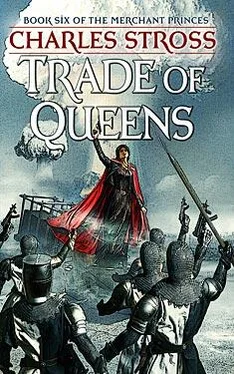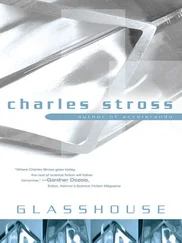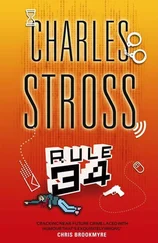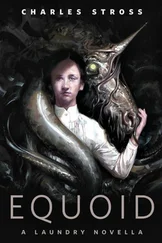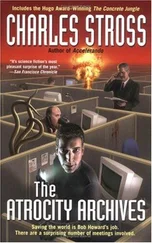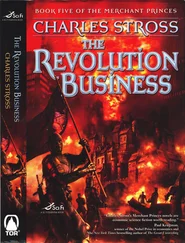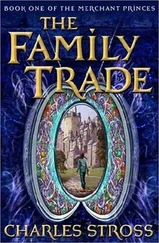Charles Stross - MP 6 -The Trade of Queens
Здесь есть возможность читать онлайн «Charles Stross - MP 6 -The Trade of Queens» весь текст электронной книги совершенно бесплатно (целиком полную версию без сокращений). В некоторых случаях можно слушать аудио, скачать через торрент в формате fb2 и присутствует краткое содержание. Жанр: Старинная литература, на английском языке. Описание произведения, (предисловие) а так же отзывы посетителей доступны на портале библиотеки ЛибКат.
- Название:MP 6 -The Trade of Queens
- Автор:
- Жанр:
- Год:неизвестен
- ISBN:нет данных
- Рейтинг книги:4 / 5. Голосов: 1
-
Избранное:Добавить в избранное
- Отзывы:
-
Ваша оценка:
- 80
- 1
- 2
- 3
- 4
- 5
MP 6 -The Trade of Queens: краткое содержание, описание и аннотация
Предлагаем к чтению аннотацию, описание, краткое содержание или предисловие (зависит от того, что написал сам автор книги «MP 6 -The Trade of Queens»). Если вы не нашли необходимую информацию о книге — напишите в комментариях, мы постараемся отыскать её.
MP 6 -The Trade of Queens — читать онлайн бесплатно полную книгу (весь текст) целиком
Ниже представлен текст книги, разбитый по страницам. Система сохранения места последней прочитанной страницы, позволяет с удобством читать онлайн бесплатно книгу «MP 6 -The Trade of Queens», без необходимости каждый раз заново искать на чём Вы остановились. Поставьте закладку, и сможете в любой момент перейти на страницу, на которой закончили чтение.
Интервал:
Закладка:
technology transfer.
They can stealthily filch the secrets of the United States' engineers and scientists, and bring them to us for development. More: They have for years been training their children in modern management techniques."
"Just so. Very well, how many of these refugees are they?"
"Miriam says two to three thousand, at the outside. Most of them cannot travel to the other world—there are only a few hundred who can—but they're blood relatives. Which suggests an angle, doesn't it?"
Sir Adam nodded. "What are they running from? Enemies at home, or this United States of America?"
"The latter. It appears they were careless and drew themselves to the attention of the authorities there. I have a distinct and unpleasant impression that the US authorities are building machines that can travel between other worlds, for purposes of invasion. In which case—"
"Hmm."
"Indeed."
"What do you intend to do with these people, Erasmus?"
"I think we have room for a couple of thousand refugees, and it's easy enough to be generous under the circumstances. We should keep them isolated and under wraps, of course. The ones who can't world-walk—as they call it—are as important as those who can: Apparently their children may acquire the trait. In the meantime, they can be used to compel cooperation. Sir Adam: I propose to use the world-walking refugees to acquire a library of scientific and technological material stolen from the United States. It may also be necessary to recruit human resources, doctors, skilled professionals, a library of experts: voluntarily if possible, but otherwise—"
"You're talking about abduction."
The door opened: Seumas and a silent palace servant entered, bearing a tea trolley. Sir Adam and Erasmus waited patiently for them to leave; then Erasmus picked up where he'd left off.
"If necessary, and only in service to our war effort, but . . . yes, if push comes to shove. May I continue? I envisage setting up a network of design bureaux and academies around this library of the future. They will act as a shield around this resource, filtering it out into our own industries. The United States is, well . . . it's hard to say, but I think their world is between fifty and a hundred years ahead of us in some respects. We won't close the gap in a decade, or even two or three, because they're moving forward as well. But we can close the gap
faster than the French.
If nothing else, knowing what played-out mines to avoid pouring treasure and sweat into will help us. This is a strategic resource, Sir Adam."
The first citizen nodded, then raised one eyebrow. "You don't need to convince me further, Erasmus: It's preposterous on first hearing but the world is indeed a strange place. But let's see, when this hits the central committee . . . argue me this: Why
you?
Why Propaganda? Why not Industry? Give me ammunition."
Erasmus picked up his teacup. It's rim clattered against the saucer it was balanced on. "Firstly, because they know me. Miss Beckstein trusts me, and she is their figurehead or leader or at least highly influential among them. These people are not beholden to us and we can't hope to corral them if they take fright. Secondly, because I'm
not
Industry. What we learn from these aliens will have effects everywhere—Industry is only the beginning of it. The Schools of Health, for instance, and the Directorates of Agriculture and Transportation—they'll all be affected. The complex I propose to establish will not be building battleships or aerodynes or setting up experimental farms; it will merely provide scientific information on these topics. It is indubitably a subdivision of Propaganda—Information. And then there's the final thing. This, this
Clan,
they are not the only people who travel between worlds. The United States are building time machines and may stumble upon us one day; and there may be others. Our treatment of these refugees will set a precedent for future diplomatic contacts with other worlds—and also our treatment of refugees from elsewhere on this one. Do you really think that hock-fist Brunner, or perhaps Oswald the Ear, would handle the nuances of disclosure effectively?"
Sir Adam's smile was frozen. "Of course they wouldn't. Erasmus, you have convinced me of most of your case, but you're wrong on this last point."
"Really?"
"Yes. Because if these people are as valuable as you tell me, we can't possibly disclose their existence in public. Not now, not in twenty years' time. No, Erasmus. I'm counting on you to reel them in and put them in a deep, padded box—and build your institute and your complex of design bureaus and all the rest of the complicated machinery. We're not going to breathe a word of this to anyone, including the rest of the commission. Not the Peace and Justice puritans—they'll just find a way to use your world-travelers as a stick to stir up trouble. Not the Radicals: I've no idea what they'd do, but it'd probably be as stupid as those land-reform proposals they keep coming up with. And Foreign Affairs: If the Bourbon gets so much as a whisper that they exist, he can make them an offer that would bankrupt our coffers to match. No. This needs to be kept secret, so secret that nobody gets a whiff of their existence. And you're just the man to see that it happens, aren't you?
"These aliens must belong to us—and us alone. Make it so."
The morning after the night before: Mike Fleming jolted abruptly awake to the sensation of the world falling away beneath his back. His eyes flickered open from uneasy, distorted dreams of pursuit, a panicky sense of disorientation tearing at his attention. He glanced sideways beneath half-closed lids; the light filtering in through the thin curtains showed him a floral print hanging on pastel-painted walls, strange furniture, someone else's decor. The jigsaw pieces of memory began to fill themselves in.
Paulie Milan's spare
room. They'd ordered in a Chinese meal, sat up late talking. There ensued an uneasy tap-dance as he—unused to hospitality, living for too long without that kind of life—borrowed towels and bedding, showered, prepared for an uneasy night's sleep. (Which largely consisted of taking off his shoes and pants, but keeping his pistol close to hand and checking out the yard from an unlit window before lying down atop the comforter.) It felt strange to be consigned to the guest room, like a one night stand gone weirdly askew down some strange dimension of alienation.
Don't sleep too deep,
he'd warned himself, only to close his eyes on darkness and open them in daylight.
Well damn, but at least nobody tried to cut my throat in the night—
He was up and standing with his back to the wall beside the door, pistol in hand, almost before he realized he'd moved. Something was amiss. His nostrils flared as he breathed in, then held his breath, listening: not to the sound of someone moving in the bathroom, or clattering in the kitchen, or voices on the radio, talking.
Not.
He'd slept through the normal noises of another person's morning. What he'd noticed was their absence, and it was infinitely more disturbing.
Voices on the radio? Talking?
He could hear voices.
Who—
Mike did a double take and closed his eyes. Tried to visualize the kitchen layout. Was there a—
Creak of a footstep on the landing. Then a tentative voice: "Mike? Are you awake yet?"
His muscles turned to jelly as he sagged, lowering the pistol. He'd been unaware of the tension in his neck and shoulders, the totality of focus, his heart hammering with a flashback to a cheap motel room in Tijuana that stank of stale cigarette smoke and claustrophobia. He pointed the gun at the floor beside him, letting its weight drag his wrist down. "Yeah?"
Читать дальшеИнтервал:
Закладка:
Похожие книги на «MP 6 -The Trade of Queens»
Представляем Вашему вниманию похожие книги на «MP 6 -The Trade of Queens» списком для выбора. Мы отобрали схожую по названию и смыслу литературу в надежде предоставить читателям больше вариантов отыскать новые, интересные, ещё непрочитанные произведения.
Обсуждение, отзывы о книге «MP 6 -The Trade of Queens» и просто собственные мнения читателей. Оставьте ваши комментарии, напишите, что Вы думаете о произведении, его смысле или главных героях. Укажите что конкретно понравилось, а что нет, и почему Вы так считаете.
